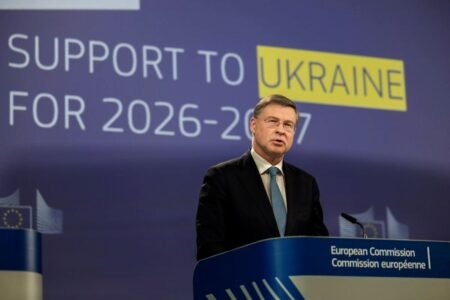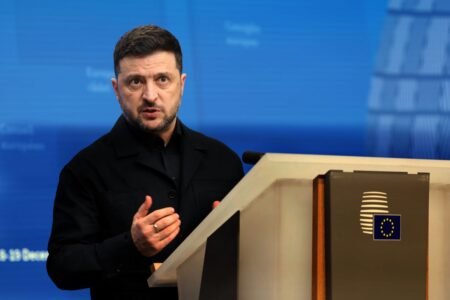(BRUSSELS) – The EU Commission set out in its autumn ‘semester’ economic policy package Wednesday action to secure energy supplies, safeguard economic stability, and protect vulnerable households and companies.
The 2023 European Semester cycle of economic policy coordination lists the ‘multiple and complex’ challenges that confront the EU from the fallout from Russia’s invasion of Ukraine.
Historically high energy prices, high inflation rates, supply shortages, increased debt levels and rising borrowing costs are affecting business activity and eroding households’ purchasing power.
The EU executive says these challenges call for coordinated action to secure adequate and affordable energy supply, safeguard economic and financial stability, and protect vulnerable households and companies while preserving the sustainability of public finances. At the same time, rapid action is needed to boost potential growth and quality job creation and deliver on the green and digital transitions. Economic policy coordination through the European Semester will help Member States achieve these objectives by setting priorities and providing clear and well-coordinated policy guidance for the year to come.
The Annual Sustainable Growth Survey puts forward an agenda to mitigate the negative impacts of energy shocks in the short term. At the same time, the EU should continue to increase social and economic resilience and foster sustainable and inclusive growth in the medium term, while maintaining flexibility to tackle new challenges.
The four priorities under the European Semester remain: promoting environmental sustainability, productivity, fairness and macroeconomic stability, with a view to fostering competitive sustainability.
The package also gives opinions on the draft budgetary plans of euro area Member States. Under the fiscal recommendations for 2023, low and medium-debt Member States should ensure that the growth of nationally financed primary current expenditure is in line with an overall neutral policy stance. High-debt Member States were recommended to ensure prudent fiscal policy, in particular by limiting the growth of nationally financed primary current expenditure below medium-term potential output growth.
The Commission is inviting Belgium, Portugal, Austria, Lithuania, Germany, Estonia, Luxembourg, the Netherlands, Slovenia and Slovakia to take the necessary measures within the national budgetary process to ensure that their 2023 budgets are fully in line with the Council’s Recommendations.
Given that Croatia will join the euro area on 1 January 2023, the Commission welcomes its decision to present a draft budgetary plan for the first time.
The Euro area recommendation presents tailored advice to euro area Member States for the period 20232024 on those topics that affect the functioning of the euro area as a whole.
Euro area Member States should:
- Continue to coordinate fiscal policies to support the timely return of inflation to the European Central Bank’s 2% medium-term target;
- Sustain a high level of public investment to foster social and economic resilience and support the green and digital transitions;
- Ensure that support provided to households and companies that come under financial stress because of the energy crisis is cost-effective, temporary, and targeted to vulnerable ones, in particular SMEs. In that respect, the recommendation suggests setting up a two-tier energy pricing system that ensures incentives for energy savings, replacing broad-based price measures. Under this system, vulnerable consumers could benefit from regulated prices.
- Foster wage developments that protect wage earners’ purchasing power, while limiting second-round effects on inflation. Develop and adapt social support system as needed.
- Further improve active labour market policies and address skills shortages.
- Ensure the effective involvement of social partners in policy-making and strengthen social dialogue.
- Further improve the business environment and preserve macro-financial stability.
The Joint Employment Report (JER) confirms that the EU labour market has fully recovered from the COVID-19 pandemic, showing a strong performance and surpassing pre-pandemic employment levels since the third quarter of 2021. Despite strong growth, young people, women, and vulnerable groups, such as people with disabilities or with a migrant background, need further support to join the job market. Policies to help workers get in-demand skills need to be strengthened to mitigate the risks of high labour and skills shortages and to support job-to-job transitions in changing labour markets, especially against the background of the green and digital transitions.
2023 European Semester: Autumn Package - guide








